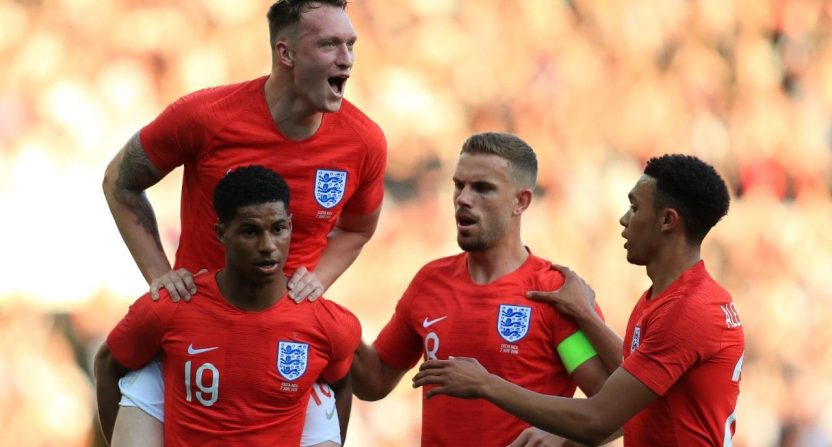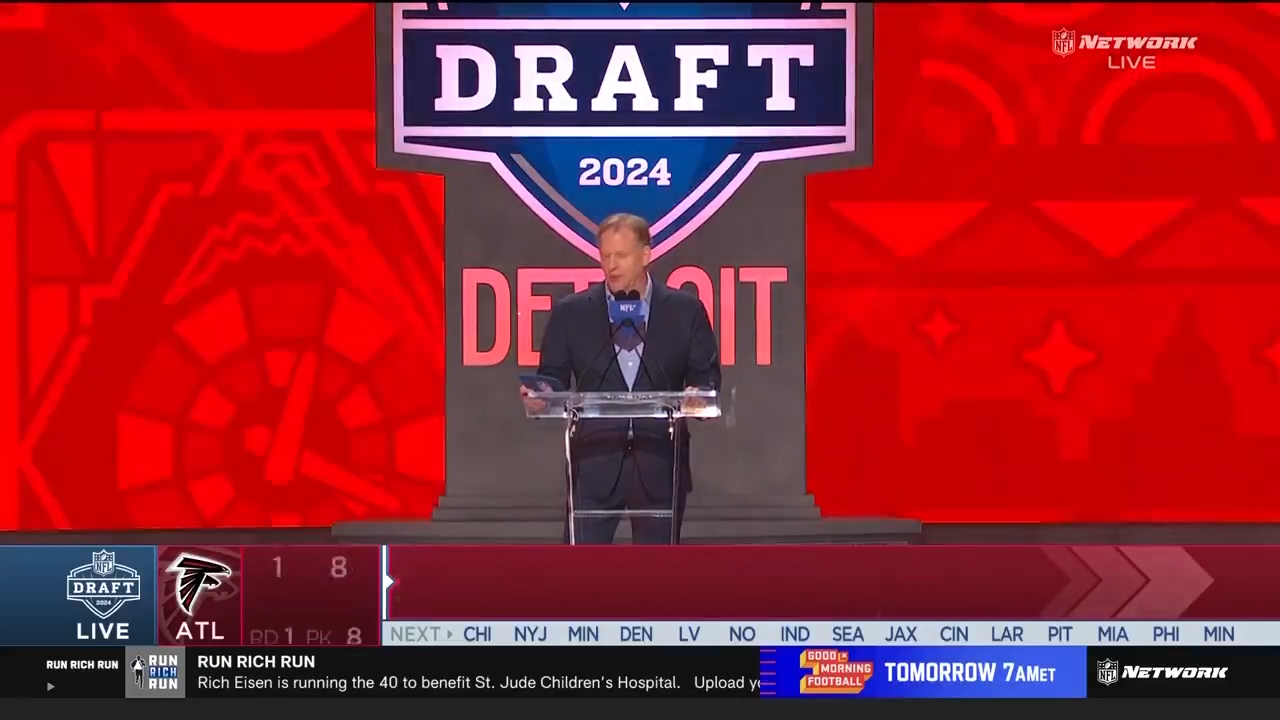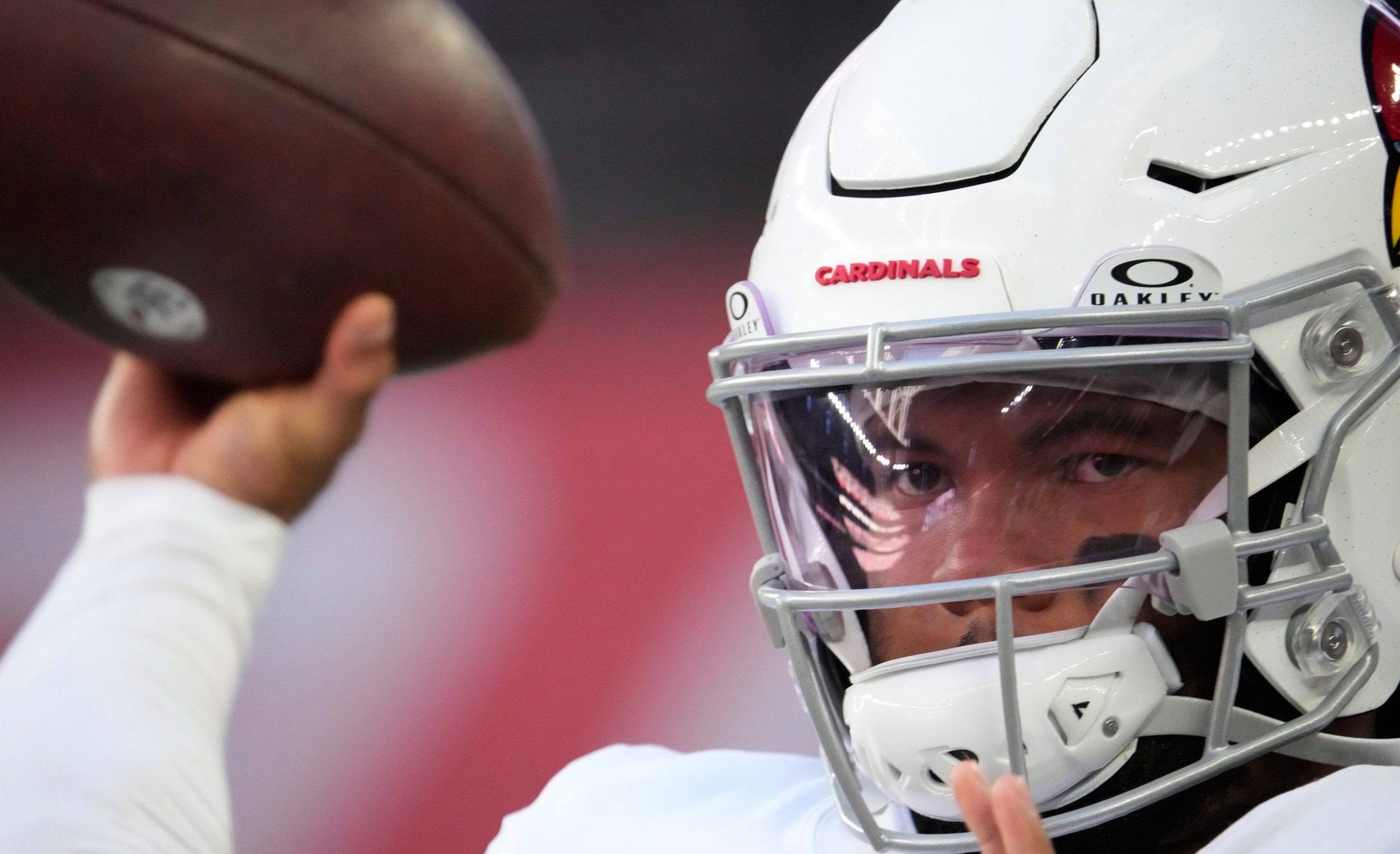In the end, football didn’t come home, but what a ride it took them on. Coming into the tournament England had very low expectations from fans that had been burned once too often. But this team was different. Before the tournament I wrote about how manager Gareth Southgate was going to get the most out of the (criticized) team he picked to go to Russia. This team had an identity, this team was unburdened by the weight of past English history. This team rallied and united a nation. This team was good.
Or this team was opportunistic.
On the grand scale this is a very glass half-full or glass half-empty way of looking at England’s World Cup run so lets’s start with the good. This team made the semifinals of the World Cup. They were one of the last four teams standing, that doesn’t happen by accident. They scored 11 goals over seven games from six different goal scorers, and their star striker won the tournament’s Golden Boot award. They won their first penalty shootout in a World Cup in their country’s history, a country with a long history of not winning penalty shootouts.
Four years ago England were eliminated six days after their first match. This year they went to the semi-final. That doesn’t happen by accident and no matter how you splice it, it’s progress.
Of course then there are critics that would prefer to use a different word when describing England: lucky. They were drawn into a group featuring Panama and Tunisia, two of the worst teams in the tournament. Failing to win the group put them on the far ‘easier’ side of the bracket, away from teams like France, Argentina, Uruguay, Brazil, and Mexico. They played a Colombia side without their star player in James Rodriguez, and still needed penalties to beat them. They scored just three goals from open play, with the rest coming from penalties and set pieces.
This doesn’t make England bad. It just means they were opportunistic.
In the World Cup, almost everything is random. The draw for the Group Stage is (relatively) random. Who you play in the knockout rounds is based on the random events of all the other games in the tournament. At the end of the day, you can only play the team that’s on their schedule. England did that, and for the most part they won those games.
It’s certainly true that England didn’t score a lot from open play in this tournament, but then again they didn’t have to. This team spent a lot of time preparing for set pieces and it showed on the field. Since when does that make a team bad? From 1994-2014 26% of all goals in the World Cup were scored on set pieces, not preparing for that and taking advantage would be plain stupid.
About 30% of goals at this WC have been on set pieces (not penalties). 26% of World Cup goals were on set pieces from 1994-2014. So they’re up, not a ton though.
— Paul Carr (@PaulCarr) July 12, 2018
With the added implementation of VAR, the crackdown on defenders bear hugging and shirt pulling in the box led to an increase in penalties. Set pieces is when the majority of those antics happen and the crackdown resulted in either attackers getting free, or penalties being awarded. England capitalized on both.
It’s inarguable England were awarded a lot of penalties this tournament, but that shouldn’t be a knock. Penalties come from putting teams under pressure. There’s a reason good teams get a lot more penalties than bad teams, because they constantly put their opponents under pressure until they crack. Those penalties still have to be finished, and Harry Kane did that every time, which is not something that Lionel Messi or Cristiano Ronaldo can say.
The thing about being opportunistic is that it works until it doesn’t. Once you stop taking advantages of the chances you’re creating, you start playing with fire.
That’s what happened to England in the semifinals against Croatia. The opportunity to go to a World Cup final was certainly there for England. Croatia may have been the better team, but the better team loses games all the time.
During the second half of the match I remarked to a friend that this was a game where all the bounces and all the ‘luck’ that you need to make a World Cup Final was going England’s way. They won a free kick and scored on it five minutes into the game. They were generating chances. In the second half while Croatia had them under siege, chances that should have been easy goals were hitting the post, hitting the bar, or Croatia was swinging and missing.
England had their chances, but for the first time all tournament they didn’t take advantage. Harry Kane missed a one v one chance and the rebound. Yes the flag was up for offside but maybe VAR overturns that. Nevertheless he had another header that he missed. Harry Maguire missed an open header. That’s only three chances but up to that point in England’s tournament, three chances would have been enough to put the game away.
They didn’t convert those chances in one game but that doesn’t make them bad nor does it make them lucky. When you win the World Cup you go down in the books as a World Cup winner. There’s no asterisk that will say “*they didn’t have to play traditional powerhouses in the knockout rounds.” You can only play who’s in front of you.
Soccer is a game of opportunities. The better teams will create more of them than the weaker teams, but that’s not what ultimately matters.
When it comes down to it, all that matters is how many of those opportunities did you cash in on? Good teams will cash in on them no matter how few their given.
That’s exactly what England did.







